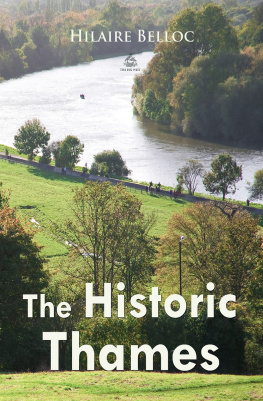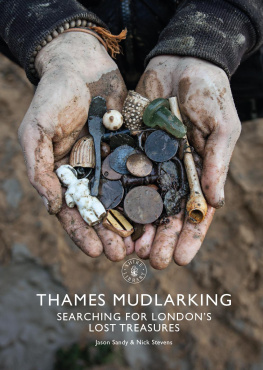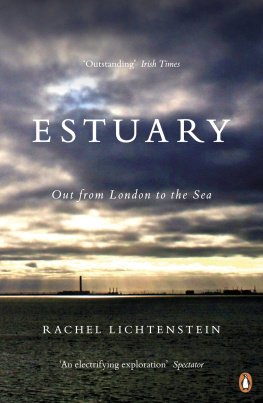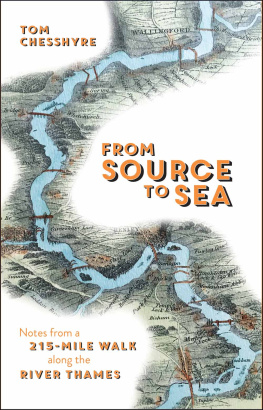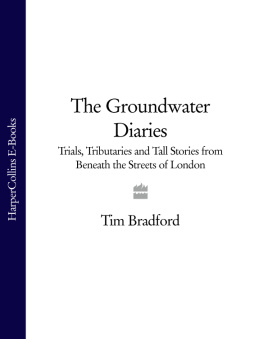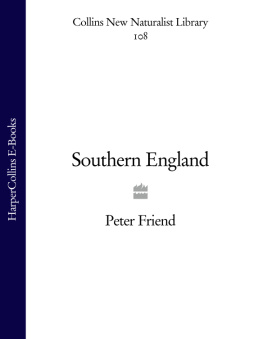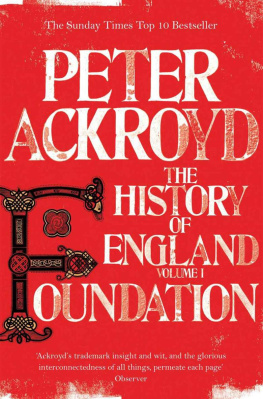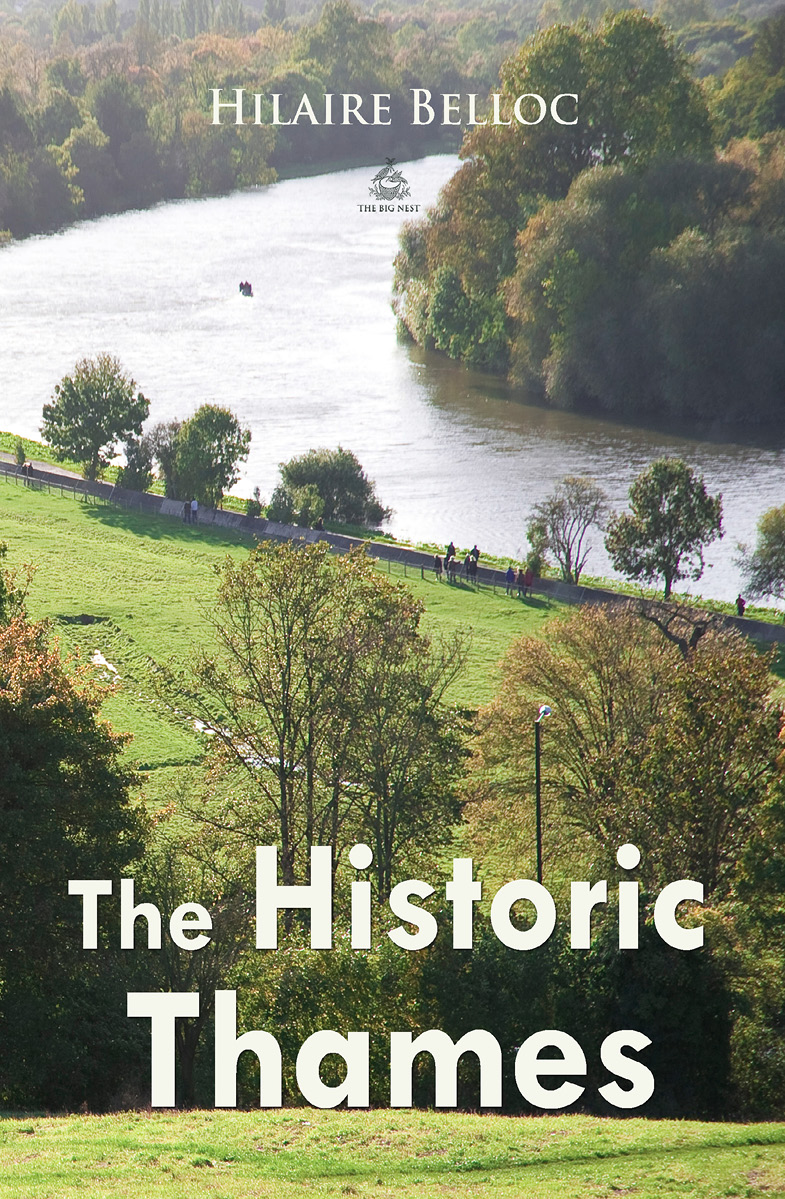

Hilaire Belloc
The Historic Thames



THE BIG NEST
LONDON NEW YORK TORONTO SAO PAULO MOSCOW
PARIS MADRID BERLIN ROME MEXICO CITY MUMBAI SEOUL DOHA
TOKYO SYDNEY CAPE TOWN AUCKLAND BEIJING
New Edition
Published by The Big Nest
www.thebignest.co.uk
This Edition first published in 2016
Copyright 2016 The Big Nest
Images and Illustrations 2016 Stocklibrary.org
All Rights Reserved.
ISBN: 9781911535676
Contents
THE HISTORIC THAMES
England has been built up upon the framework of her rivers, and, in that pattern, the principal line has been the line of the Thames.
Partly because it was the main highway of Southern England, partly because it looked eastward towards the Continent from which the national life has been drawn, partly because it was better served by the tide than any other channel, but mainly because it was the chief among a great number of closely connected river basins, the Thames Valley has in the past supported the government and the wealth of England.
Among the most favoured of our rivals some one river system has developed a province or a series of provinces; the Rhine has done so, the Seine and the Garonne. But the great Continental river systemsat least the navigable onesstand far apart from one another: in this small, and especially narrow, country of Britain navigable river systems are not only numerous, but packed close together. It is perhaps on this account that we have been under less necessity in the past to develop our canals; and anyone who has explored the English rivers in a light boat knows how short are the portages between one basin and another.
Now not only are we favoured with a multitude of navigable waterwaysthe tide makes even our small coastal rivers navigable right inlandbut also we are quite exceptionally favoured in them when we consider that the country is an island.
If an island, especially an island in a tidal sea, has a good river system, that system is bound to be of more benefit to it than would be a similar system to a Continental country. For it must mean that the tide will penetrate everywhere into the heart of the plains, carrying the burden of their wealth backward and forward, mixing their peoples, and filling the whole national life with its energy; and this will be especially the case in an island which is narrow in proportion to its length and in which the rivers are distributed transversely to its axis.
When we consider the river systems of the other great islands of Europe we find that none besides our own enjoys this advantage. Sicily and Crete, apart from the fact that they do not stand in tidal water, have no navigable rivers. Iceland, standing in a tidal sea, too far north indeed for successful commerce, but not too far north for the growth of a civilisation, is at a similar disadvantage. Great Britain and Ireland aloneGreat Britain south of the Scottish Mountains, that isenjoy this peculiar advantage; and there are few things more instructive when one is engaged upon the history of England than to take a map and mark upon it the head of each navigable piece of water and the head of its tideway, for when this has been done all England, with the exception of the Welsh Hills and the Pennines, seems to be penetrated by the influence of the sea.
The conditions which give a river this great historic importance, the fundamental character, therefore, which has lent to the Thames its meaning in English history, is twofold: a river affords a permanent means of travel, and a river also forms an obstacle and a boundary. Men are known to have agglomerated in the beginning of society in two ways: as nomadic hordes and as fixed inhabitants of settlements.
There has arisen a profitless discussion as to which of these two phases came first. No evidence can possibly exist upon either side, but one may take it that with the first traditions and records, as at the present time, the two systems existed side by side, and that either was determined by geographical conditions. A river is an advantage to both groups, but to the second it is of more consequence than to the first; and in South England, if we go back to the origins of our history, it is in fixed settlements that we find the first evidence of man. With every year of research the extreme antiquity of our inhabited sites becomes more apparent. And indeed the geographical nature of Southern England should make us certain of the antiquity of village life in it, even were there no archological evidence to support that antiquity.
South England is everywhere fertile, everywhere well watered, and nowhere divided, as is the North, by long districts of bare country, or of hills snowbound in winter, or of morass. Its forests, though numerous, have never formed one continuous belt; even the largest of them, the Forest of the Weald, between the downs of Surrey and Kent and those of Sussex, was but twenty miles acrosslarge enough to nourish a string of hunting villages upon the north and the south edges of it; but not large enough to isolate the Thames Valley from the southern coast.
From the beginning of human activity in this island the whole length of the river has been set with human settlements never far removed one from the other; for the Thames ran through the heart of South England, and wherever its banks were secure from recurrent floods it furnished those who settled on them with three main things which every early village requires: good water, defence, and communication.
The importance of the first lessens as men learn to dig wells and to canalise springs; the two last, defence and communication, remain attached to river settlements to a much later date, and are apparent in all the history of the Thames.
The problem of communication under early conditions is serious. Even in a high civilisation the maintenance of roads is of greater moment, and imposes a greater burden, than most of the citizens who support it know; but before the means or the knowledge exist to survey and to harden roads, with their causeways over marshes and their bridges over rivers, the supply of food in time of scarcity or of succour in time of danger is never secure: a little narrow path kept up by nothing but the continual passage of men and animals is all the channel a community of men have for communicating with their neighbours by land. And it must be remembered that upon such communication depend not only the present existence, but the future development of the society, which cannot proceed except by that fertilisation, as it were, which comes from the mixture of varied experiences and of varied traditions: every great change in history has necessarily been accompanied by some new activity of travel.
Under the primitive conditions of which we speak a river of moderate depth, not too rapid in its current and perennial in its supply, is much the best means by which men may communicate. It will easily carry, by the exertions of a couple of men, some hundred times the weight the same men could have carried as porters by land. It furnishes, if it is broad, a certain security from attack during the journey; it will permit the rapid passage of a large number abreast where the wood tracks and paths of the land compel a long procession; and it furnishes the first of the necessities of life continually as the journey proceeds.

